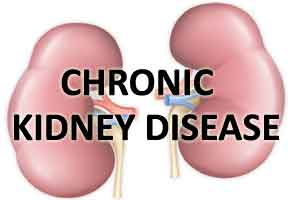- Home
- Editorial
- News
- Practice Guidelines
- Anesthesiology Guidelines
- Cancer Guidelines
- Cardiac Sciences Guidelines
- Critical Care Guidelines
- Dentistry Guidelines
- Dermatology Guidelines
- Diabetes and Endo Guidelines
- Diagnostics Guidelines
- ENT Guidelines
- Featured Practice Guidelines
- Gastroenterology Guidelines
- Geriatrics Guidelines
- Medicine Guidelines
- Nephrology Guidelines
- Neurosciences Guidelines
- Obs and Gynae Guidelines
- Ophthalmology Guidelines
- Orthopaedics Guidelines
- Paediatrics Guidelines
- Psychiatry Guidelines
- Pulmonology Guidelines
- Radiology Guidelines
- Surgery Guidelines
- Urology Guidelines
Vitamin D Deficiency in Children with CKD

Highlights
- Two-thirds of the children with kidney disease were classified as vitamin D deficient.
- Children with kidney disease who took vitamin D supplements had vitamin D levels that were 2 times higher than those who did not take supplements.
- Certain genetic variants were also associated with vitamin D levels.
Vitamin D deficiency often elicits no symptoms, but it may increase the risk of osteoporosis, cancer, cardiovascular disease, and autoimmune disorders.
Washington : Researchers have identified certain modifiable and non-modifiable factors associated with vitamin D deficiency in children with chronic kidney disease (CKD). The findings, which appear in an upcoming issue of the Clinical Journal of the American Society of Nephrology (CJASN), could help physicians protect the health of these young patients.
Vitamin D deficiency is common in children with chronic kidney disease (CKD). In an attempt to understand why, a team led by Anke Doyon, MD and Franz Schaefer, MD (University of Heidelberg, Germany) looked at how various factors relate to vitamin D levels in 500 children with CKD who were residing in 12 European countries.
Among the major findings:
• Two-thirds of the patients were classified as vitamin D deficient.
• Patients who took vitamin D supplements had vitamin D levels that were 2 times higher than those who did not take supplements, and they had a 70% lower prevalence of vitamin D deficiency.
• Vitamin D levels were lower in winter months than at other times of the year.
• Certain genetic variants were also associated with vitamin D levels, but to a lesser extent than disease-associated factors and vitamin D supplementation.
“Vitamin D levels are influenced more strongly by seasonal factors and nutritional supplementation than by common variants in vitamin D regulating genes,” said Dr. Doyon. “Supplementation practices should be reconsidered and intervention studies are needed to define guidelines how to monitor and treat vitamin D deficiency in children.
Study co-authors include, Bettina Schmiedchen, Anja Sander, Aysun Bayazit MD, Ali Duzova MD, Nur Canpolat MD, Daniela Thurn MD, Karolis Azukaitis MD, Ali Anarat MD, Justine Bacchetta MD, Sevgi Mir MD, Rukshana Shroff MD, Ebru Yilmaz MD, Cengiz Candan MD, Markus Kemper MD, Michel Fischbach MD, Gerard Cortina MD, Günter Klaus MD, Matthias Wuttke MD, Anna Köttgen MD, Anette Melk MD, Uwe Querfeld MD, Franz Schaefer MD.

Disclaimer: This site is primarily intended for healthcare professionals. Any content/information on this website does not replace the advice of medical and/or health professionals and should not be construed as medical/diagnostic advice/endorsement or prescription. Use of this site is subject to our terms of use, privacy policy, advertisement policy. © 2020 Minerva Medical Treatment Pvt Ltd